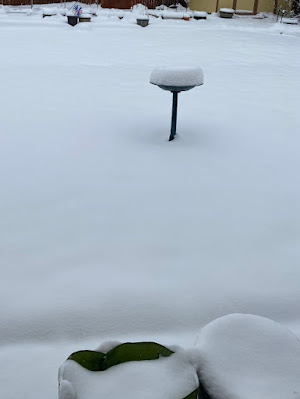 |
| Photo: Joyce D'Agostino |
As the snow falls, it collects elements in the atmosphere such as nitrogen in several forms plus other trace elements that are helpful to gardeners and farmers. Nitrogen for example, is beneficial for strong plant structure and growth and often farmers would call snow “poor man’s fertilizer”. Rain and lightning can also contain these elements but one benefit of snow is that it melts more slowly and allows the soil to absorb the elements more slowly and efficiently. It also falls when the temperatures are lower and there is less evaporation.
People who live in areas with high pollution may also find that some of the pollutants are present in the snow and rain that falls on their fields and gardens. Getting an accurate, lab-based soil analysis can help you know what beneficial elements are in your soil as well as what may be less desirable, and what to do about managing what might be a pollutant.
In the front range of Colorado, often our biggest snowfalls happen in the late winter and spring. Having a good soil analysis will also help to know when is the best time to apply additional fertilizer if needed for your lawns, trees and shrubs and gardens.





